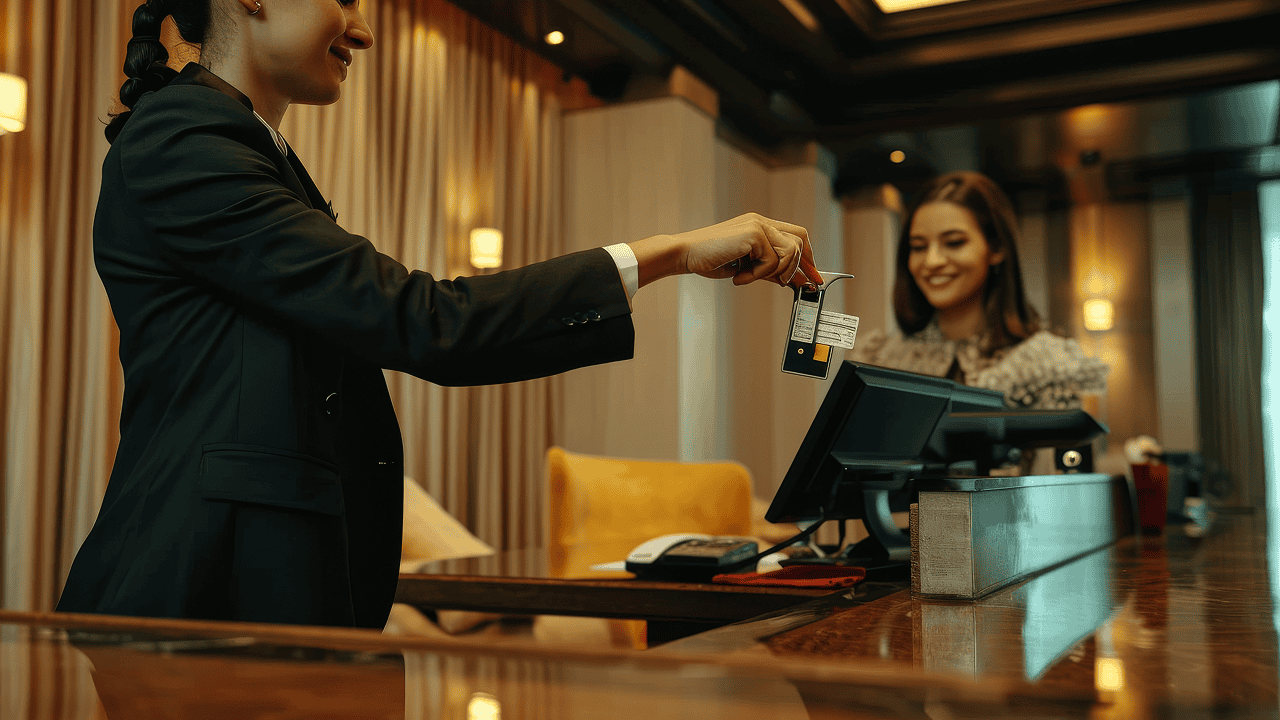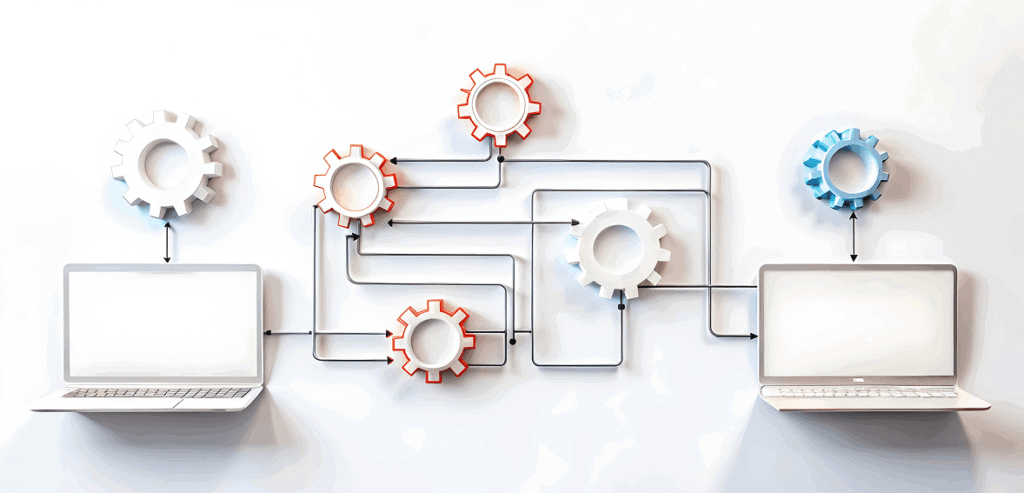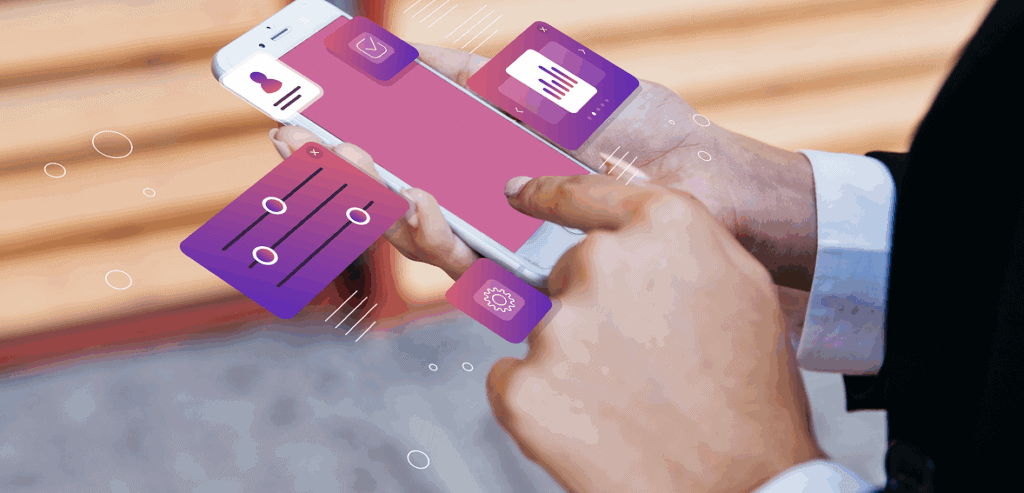
By Sharon Hudson August 11, 2025
Boutique hotels thrive on offering a unique, personalized experience for their guests. But delivering that experience isn’t just about design and decor. It’s also about the back-end systems that keep operations running smoothly. One of the most powerful ways boutique hotels can enhance their service, improve efficiency, and boost profitability is by integrating their booking and payment systems.
Guests today expect fast, seamless, and secure transactions from the moment they book a room to when they check out. Behind the scenes, this requires tight coordination between booking engines, property management systems, and payment gateways. When these elements function in isolation, the result is manual work, increased error risk, and poor guest satisfaction.
The Challenge of Disconnected Hotel Systems
Many boutique hotels operate with multiple standalone systems. One platform may handle bookings, another stores guest data, and a third processes payments. In this fragmented environment, staff often end up switching between systems, manually updating records, and cross-verifying payments.
This approach is not only inefficient but also error-prone. Mismatched data can lead to double bookings, missed payments, or incomplete guest records. These mistakes don’t just waste time. They negatively impact the guest experience, which is especially crucial for boutique hotels that rely heavily on personal service and repeat customers.
Boutique hotel payment integration offers a way out of this disjointed workflow. When booking and payment systems are connected, processes become more accurate, faster, and easier to manage.
Understanding Boutique Hotel Payment Integration
Boutique hotel payment integration refers to the seamless connection of a hotel’s reservation, booking, and payment processing systems. It ensures that when a guest makes a booking, the information automatically flows into the PMS, updates the availability calendar, and initiates payment processing through a connected gateway.
This integration reduces the need for manual data entry, shortens response time, and helps the hotel maintain real-time oversight of both bookings and revenue. For smaller properties with lean teams, this is a significant operational advantage.
By aligning booking and payment tools, boutique hotels can offer faster check-ins, easier cancellations, quicker refunds, and secure payment options. The result is not just convenience but a more professional and polished guest experience.
Key Components of an Integrated System

For boutique hotel payment integration to be effective, several systems must work together in harmony. Each plays a specific role in ensuring that bookings and payments are processed accurately and efficiently.
PMS Payment Gateway
A PMS payment gateway is the link between your property management system (PMS) and your payment processor. This gateway securely handles credit card transactions, allowing the hotel to process deposits, no-show charges, and final payments directly from within the PMS.
Integrating a PMS payment gateway eliminates the need to re-enter payment data manually, reducing errors and improving PCI compliance. It also allows staff to authorize, capture, and refund transactions with fewer steps, saving time during peak hours or late-night check-ins.
Booking Engine Integration
The booking engine integration connects your direct booking portal with your PMS. When guests make a reservation through your website, the data flows directly into your management system, instantly updating availability and rates.
A strong booking engine integration supports real-time pricing, promotions, and package updates, making it easier to drive direct bookings. It also ensures that guest data is captured correctly, facilitating follow-up communication and payment tracking.
Channel Manager
A channel manager is a tool that syncs room availability and rates across multiple online travel agencies (OTAs) like Booking.com, Expedia, or Airbnb. It connects with your PMS and booking engine to avoid overbookings and rate mismatches.
By using a channel manager, boutique hotels can expand their reach without increasing administrative tasks. Payments from OTA bookings are automatically captured, and availability is instantly adjusted across all channels.
Benefits of Integrated Booking and Payment Systems

The advantages of integrating booking and payment systems extend far beyond technical convenience. These integrations create a better environment for both guests and hotel staff.
Operational Efficiency
When systems are connected, manual entry is minimized. Staff can check availability, process payments, and send confirmation emails all from a single dashboard. This reduces errors and allows teams to focus on service rather than repetitive tasks.
Integrated systems also enable hotel payment automation, which speeds up operations. Payments can be triggered at specific stages, such as booking confirmation or check-in, with receipts and invoices generated automatically.
Enhanced Guest Experience
A smooth digital experience is essential in modern hospitality. Guests expect immediate booking confirmations, clear payment terms, and secure transactions. With boutique hotel payment integration, these expectations are met without delay.
Automated payment links, mobile check-in options, and paperless receipts all contribute to a more professional and guest-friendly process. These small details can make a big difference in guest satisfaction.
Improved Cash Flow and Reporting
Integration gives hotel owners and managers real-time insight into revenue and outstanding payments. Payments are settled faster, refunds are easier to manage, and financial reporting becomes more accurate.
With all transactions recorded in one place, end-of-day reconciliation is quicker. You can track performance by channel, monitor peak booking times, and adjust pricing or marketing strategies accordingly.
Automating Payments for Greater Accuracy
Hotel payment automation is one of the most impactful outcomes of integration. It refers to setting up rules and workflows that trigger payments automatically based on predefined conditions.
For example, you can configure your system to charge a deposit when a reservation is made, process the remaining balance on the check-in date, and email the invoice on checkout. These actions happen without staff intervention, reducing workload and improving accuracy.
Automation is especially helpful for handling cancellations, no-shows, and group bookings. It ensures that charges are consistent with your policies and minimizes disputes over billing.
In a boutique hotel setting, where staff may wear multiple hats, hotel payment automation allows them to focus more on hospitality and less on administration.
Customizing the Reservation System for Integration
Your reservation system serves as the central hub of guest interaction. It should not only manage room availability and booking details but also integrate with payment tools and marketing systems.
Customizing your reservation system means ensuring that it captures the right guest data, applies rate plans correctly, and supports multiple payment options. It should also provide backend features like dashboard access, audit trails, and communication logs.
Look for systems that support two-way synchronization with your PMS and booking engine. This ensures that updates flow in both directions and your team always works with the latest information.
A robust reservation system improves not only internal efficiency but also guest confidence. It helps present a professional front while ensuring the back-end operations run smoothly.
Security and Compliance in Integrated Systems
Integrating systems doesn’t just improve speed. It also strengthens security—if done correctly. By reducing manual data entry and keeping sensitive information within controlled platforms, you lower the risk of data leaks and compliance violations.
When setting up boutique hotel payment integration, make sure your providers support PCI DSS compliance. Your PMS payment gateway should encrypt data and use tokenization to protect cardholder information.
Regularly update all systems and perform audits to ensure compliance. Staff should be trained on handling data securely and recognizing signs of fraud or suspicious activity.
Secure integration not only protects your hotel from fines or breaches but also reassures guests that their information is safe with you.
Choosing the Right Tools and Vendors
Selecting the right technology partners is crucial to successful integration. When evaluating tools for boutique hotel payment integration, consider functionality, support, scalability, and security.
Ask vendors whether their tools support integration with your existing PMS, booking engine, and channel manager. Confirm if they provide APIs or pre-built connectors to avoid costly custom development.
Check if the solution supports hotel payment automation and multi-currency processing, especially if your guest base is international. Look for systems with easy-to-use dashboards, mobile access, and reliable uptime.
A well-chosen technology stack makes integration smoother and ensures that your hotel is ready for future growth.
Staff Training and Operational Readiness
Even the most advanced systems are only as good as the people using them. For integration to be effective, your staff needs to be comfortable with the new workflows.
Provide clear documentation and conduct hands-on training sessions. Staff should understand how the reservation system, payment gateway, and channel manager work together. Teach them how to handle exceptions, such as failed transactions or booking discrepancies.
Encourage feedback from employees on usability and process improvements. Their insights can help refine workflows and improve the overall system performance.
Well-trained teams ensure that boutique hotel payment integration works as intended and that any issues are quickly resolved.
Future Trends in Booking and Payment Integration
The hospitality industry continues to evolve, and new trends are shaping how boutique hotels manage bookings and payments. Voice-activated bookings, AI-powered rate management, and mobile-first systems are becoming more common.
Cloud-based systems allow for remote management and faster updates. Many vendors now offer modular solutions, so you can start small and scale as your needs grow.
Integration with CRM tools, loyalty programs, and marketing platforms is also on the rise. This allows hotels to build detailed guest profiles and personalize their offers.
Staying current with these trends ensures your reservation system and payment tools remain competitive and capable of meeting guest expectations.
Conclusion: Efficiency Through Smart Integration
Efficiency in hospitality is not just about saving time. It’s about delivering better experiences, improving cash flow, and staying competitive. For boutique hotels, integration is the key to unlocking these benefits. By aligning your PMS payment gateway, booking engine integration, and channel manager, you create a foundation that supports smoother operations and happier guests. Add hotel payment automation and a smart reservation system, and you’re well on your way to a more efficient, secure, and scalable operation. Investing in boutique hotel payment integration today sets you up for greater success tomorrow. It turns fragmented tasks into a unified flow, allowing your staff to focus on what they do best—offering exceptional hospitality to every guest who walks through your doors.